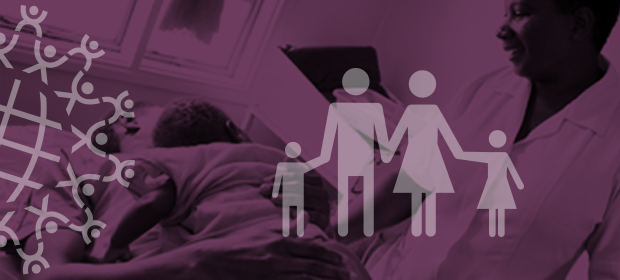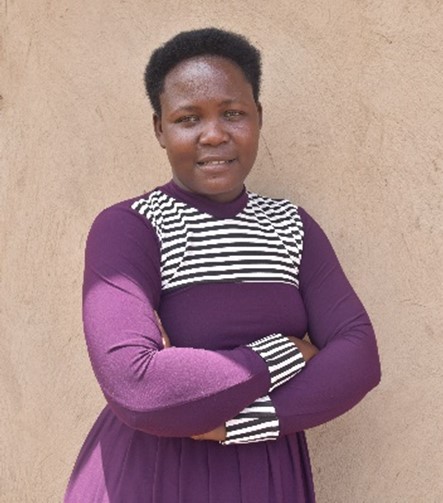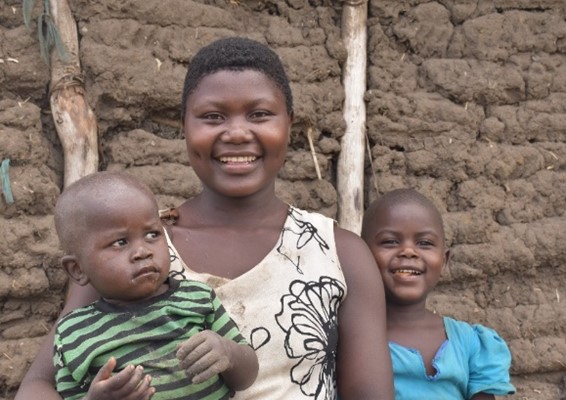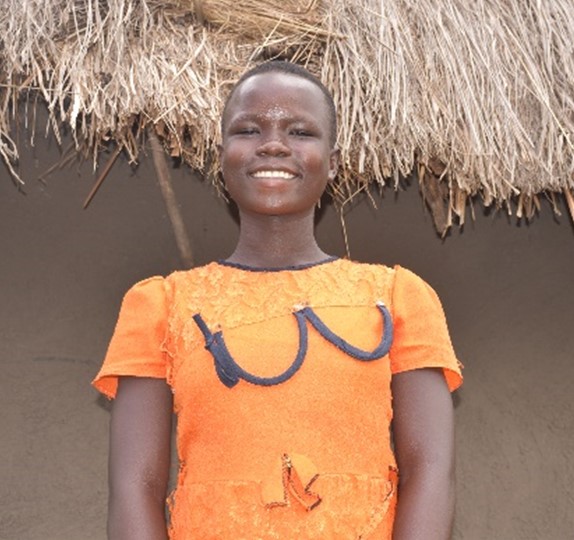Where We Work
See our interactive map


RHITES-E is expanding the range of high-quality services for women in 30 districts in Eastern Uganda.
In rural Eastern Uganda, three young women between the ages of 19 and 24 are happy, healthy, and focused on achieving their dreams, thanks to community-based family planning providers.
During the COVID-19 pandemic, IntraHealth International’s Regional Health Integration to Enhance Services in Eastern Uganda (RHITES-E) program has increased community-level interventions to improve family planning services and make them more accessible, while also emphasizing community participation, citizen accountability, reporting, and the importance of data. For young women like Nandutu Phiona, Betty Khaitsa, and Susan Neumbe, this expansion in their communities has made it easier to access high-quality family planning services.
The 2016 Uganda Demographic Health Survey (UDHS) reported that Uganda has a national total fertility rate (TFR) of 5.4—the average number of children a woman would have by the end of her childbearing years. In 12 of the 25 RHITESE-E districts in Eastern Uganda, the TFR rate was above seven and the unmet need for family planning was 28.7 percent.
According to the Ministry of Local Government and Social & Scientific Systems (SSS) Inc., the unmet need for family planning rate in eastern Uganda has now dropped to 7.97% and the contraceptive prevalence rate is around 37 percent. And RHITES-E is making sure services are still available during COVID-19.
 “I was inspired to use contraceptives because of my older sister,” she says. “She has finished school and has a teaching job. She has been able to lead a happy life. I have witnessed positive changes in her life, and now I want to finish my teaching diploma and become a teacher. Using family planning has helped me focus on this because I have no worries of unwanted pregnancy.”
“I was inspired to use contraceptives because of my older sister,” she says. “She has finished school and has a teaching job. She has been able to lead a happy life. I have witnessed positive changes in her life, and now I want to finish my teaching diploma and become a teacher. Using family planning has helped me focus on this because I have no worries of unwanted pregnancy.”
 "Short-term methods have helped me space my three children,” Betty says. “My husband has been supportive and I’m now using a long-acting reversible contraceptive method. It gives me a peace of mind. Due to COVID-19 travel restrictions, I would not walk to the health center, so the health worker comes to my home to ensure I receive my method of choice. Now, I’m able to focus on raising my three children.”
"Short-term methods have helped me space my three children,” Betty says. “My husband has been supportive and I’m now using a long-acting reversible contraceptive method. It gives me a peace of mind. Due to COVID-19 travel restrictions, I would not walk to the health center, so the health worker comes to my home to ensure I receive my method of choice. Now, I’m able to focus on raising my three children.”
The community family planning provider Betty mentions was trained by RHITES-E.
 “I saw two of my friends become teen mothers and it scared me,” she says. “I went to my community family planning provider, who counseled me and provided family planning information and choices. I’m not ready to be a mother, I want to finish school. It has been hard especially during the COVID-19 lockdown. We’re out of school and we are exposed to all kinds of risks.
“I saw two of my friends become teen mothers and it scared me,” she says. “I went to my community family planning provider, who counseled me and provided family planning information and choices. I’m not ready to be a mother, I want to finish school. It has been hard especially during the COVID-19 lockdown. We’re out of school and we are exposed to all kinds of risks.
Accessing family planning information has empowered me to make informed decisions about my reproductive health. I want to finish school and become a teacher.”
RHITES-E has trained 366 community health workers in six districts in Eastern Uganda to provide family planning services to women in the community, follow-up on side effects, and refer clients to health facilities for long-acting reversible contraceptives, such as IUDs and implants.
“RHITES-E has helped us provide community family planning services to adolescents and young women who find it difficult to walk to the facility for various reasons, ranging from stigma to restricted movements during the COVID-19 pandemic,” says Moses Wakonelo, a community-based family planning provider. “The community family planning health workers remain a key component to ensure family planning services continue.”
The community strategy has been effective in reaching adolescent girls and young women. Establishing networks for easier access to family planning services has complemented community outreach and dialogues. RHITES-E has also mentored health workers and strengthened community-level structures for high-quality family planning services at health facilities.
The Regional Health Integration to Enhance Services in Eastern Uganda (RHITES-East) program is led by IntraHealth International and funded by the US Agency for International Development.
Get the latest updates from the blog and eNews




